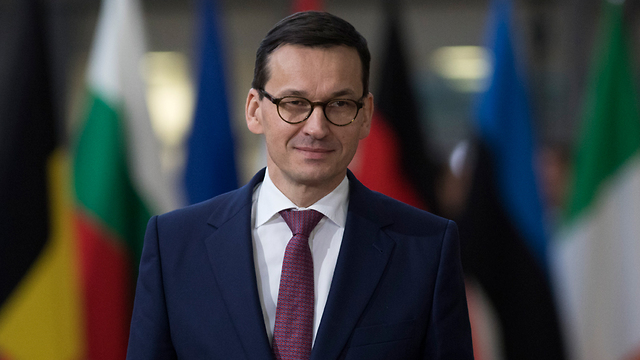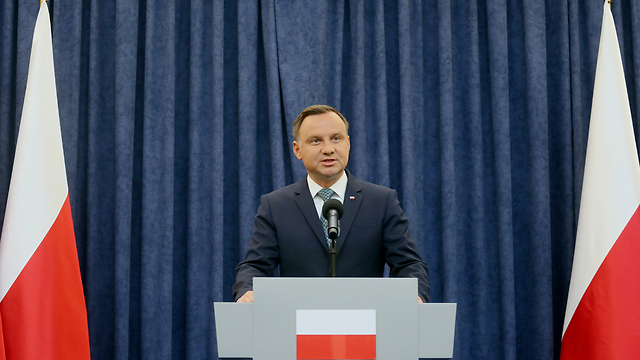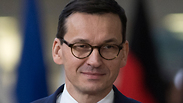
Polish PM: 'Work sets you free' is not a Polish phrase
Amid outrage in Israel over passage of 'Polish death camps' legislation, Polish PM Mateusz Morawiecki argues 'Auschwitz' not a Polish name; Israel's Foreign Affairs Ministry decries politicians' rush to make headlines over bill without reading it, saying its 'contents are mostly accurate—the death camps were not Polish.'
Amid criticism of new legislation passed in his country outlawing reference to "Polish death camps," Poland's Prime Minister Mateusz Morawiecki argued Saturday that "Auschwitz" was not a Polish name while "Arbeit Macht Frei"—"Work sets you free"—was not a Polish phrase.
"Auschwitz is the most bitter lesson on how evil ideologies can lead to hell on earth. Jews, Poles, and all victims should be guardians of the memory of all who were murdered by German Nazis," he wrote on Twitter.
The legislation, which prescribes up to three years in prison for defaming the Polish nation by using phrases such as "Polish death camps" to refer to the killing sites Nazi Germany operated in occupied Poland during World War II, passed on Friday in the lower house of the Polish parliament. It still needs approval from Poland's Senate and president.
It was met with strong criticism in Israel, with Prime Minister Benjamin Netanyahu calling the bill "baseless," and arguing that "One cannot change history and the Holocaust cannot be denied."
Israeli President Reuven Rivlin echoed Netanyahu's sentiments, asserting that "The Jewish people, the State of Israel, and the entire world must ensure that the Holocaust is recognized for its horrors and atrocities. Also among the Polish people there were those who aided the Nazis in their crimes. Every crime, every offense, must be condemned. They must be examined and revealed."
However, the president added, "There were also others among them who fought and were recognized as Righteous Among the Nations."
Earlier Saturday, the Polish premier participated in a ceremony marking the 73rd anniversary of the liberation of the Auschwitz death camp, a date in which the world marks the International Holocaust Remembrance Day.
Commenting on the role Poland played in the Holocaust, Morawiecki said, "Information about what happened here reached the West, Europe and especially Britain. That information was smuggled by Poles who risked their lives—but it was ignored.
"The death camps are a reminder for us and we have to respect them. All sites of German crimes on Polish soil are preserved in accordance with the law, and nothing else may be built there. They should not be used for any purpose other than remembrance.
"We remember that in Poland and want all other European countries to mark it as we do. There are 20,000 Righteous among the Nations (people who rescued Jews during the Holocaust as recognized by the Yad Vashem Holocaust Museum in Jerusalem—ed), 7,000 of which are Poles.
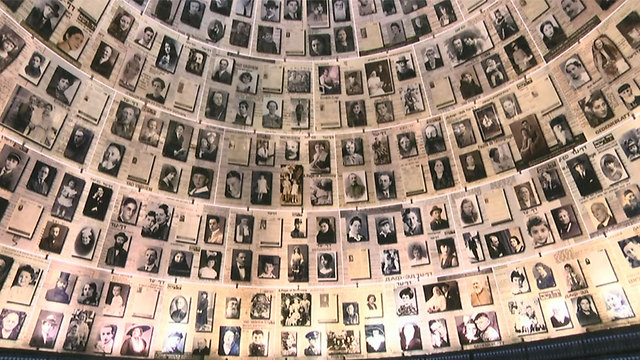
"In occupied Poland anyone caught helping Jews was immediately sentenced to death and Polish citizens were executed for trying to defend Jews. That is why Yad Vashem is still missing a special tree for Poland—a Polish tree."
Polish deputy ambassador called in to Foreign Ministry for clarification
Israel's Ministry of Foreign Affairs summoned the Polish deputy ambassador for a clarification talk, but it was the ministry itself that attempted to ameliorate the harsh responses garnered from both sides of the political aisle regarding the legislation's passage on the eve of International Holocaust Remembrance Day.
"Beyond the fact that the timing of the Polish bill was lamentable, it should honestly be said that its contents are mostly accurate—the death camps were not Polish," a Foreign Affairs Ministry source said Saturday.
"Before Israeli politicians go running to microphones, they should read the bill's language. It does not deny the Holocaust. It does not say there weren't any Poles who slaughtered Jews. It does not say that Poles are not worthy of denunciation for their part in murdering Jews. What it does say is the truth: that the death camps were not Polish but German, period. Germany is responsible for the Holocaust," the source stated.

The diplomatic official then voiced concerns over the possible ramifications such responses from Israeli politicians may have. "This affair may cause a serious crisis in our relationship with Poland, which is considered very friendly towards Israel. Poland needs us and we need it.
"It's a shame prejudice and settling of old scores were imposed on the bill. Our relationship with Poland is much too important to be soured by people who haven't even read the bill."
The Foreign Affairs Ministry and the Israeli Embassy in Poland still hold firm to the belief that the legislation may yet be amended, citing Poland's heightened sensitivity towards Israel and Jewish organizations' positions on matters relating to the Holocaust.
One example of said sensitivity is freezing the draft bill regarding returning property to Holocaust survivors, which was considered draconian as it did not allow survivors who do not currently reside in Poland and that are not Polish citizens to receive their property back. Due to pressures exerted by Israel and Jews, the two articles were removed from the bill.
Polish-Canadian historian Jan Grabowski, who is himself Jewish, estimated that between 200,000 and 300,000 Jews were murdered by Poles during the Holocaust.
Poland, however, counters by claiming some 60,000 Poles saved Jewish lives in the Holocaust. Other estimates find this number somewhat exaggerated, while Yad Vashem has only recognized 6,000 Poles as Righteous among the Nations. Poland is nevertheless still the country with the largest number of such people.
'Poland, Israel must find common ground to remember shared history'
Speaking at the memorial event held at Auschwitz, Israel's Ambassador to Poland Anna Azari thanked the Polish government for its "rapid and decisive response against the neo-Nazi movement's activities."
Ambassador Azari commented on the contentious bill as well, saying, "The Israeli government rejects this legislation and we hope we can come to an agreement on changing it. Israel understands full well what the Auschwitz Camp is and who built other camps. We all know it wasn't Poles.
"I believe Poland and Israel, good friends that they are, can find common ground on deciding together how to remember our shared history. We respect the memory of all those who perished during the Holocaust."
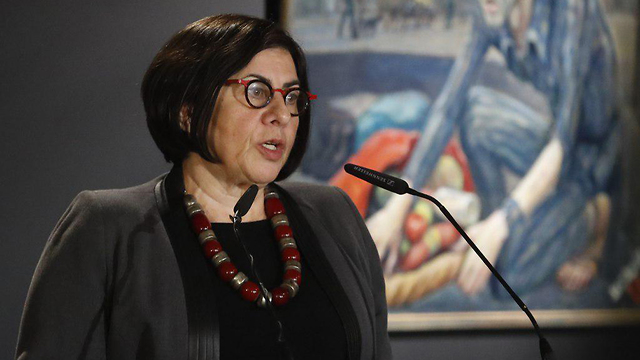
Polish Deputy Justice Minister Patrick Yaki, who sponsored the bill, tweeted it was not aimed against Israel. "Prominent Israeli politicians and the media are attacking us over the bill. They say Poland was complicit in the Holocaust. It only further proves how much the bill is important," he said.
The Polish government also claimed the bill's goal was not to hamper freedom of speech regarding the Holocaust. The government's spokesperson Joanna Kopcińska tweeted the bill was aimed at "presenting the truth regarding the horrid crimes carried out against Poles, Jews and people of other nationalities who fell victim to the 20th century's totalitarian regimes—Nazi Germany and its ally the communist Soviet Union."
Director of the European Jewish Association Rabbi Menachem Margolin called on President Andrzej Duda to utilize his constitutional right to veto the lower house of parliament's decision to pass the bill.
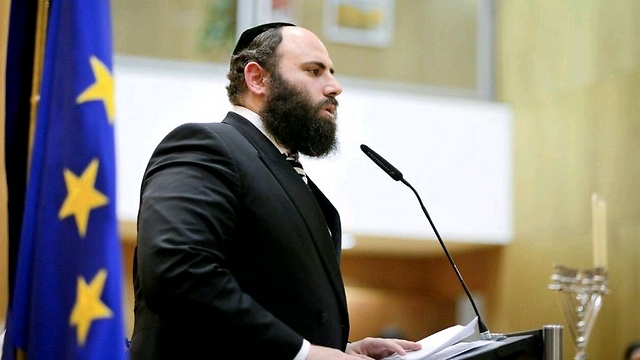
Rabbi Margolin further professed his hope that heads of the house's parties will come to their senses and abort the legislative process themselves.
"This legislation, especially considering its timing, is a slap in the face not only to the victims and to history but to all those lamentably too few Polish citizens who were Righteous Among the Nations, and saved Jews and others from the Nazi death machine and from the lamentably too many Polish anti-Semites who collaborates with them," he said.
Rabbi Margolin also instructed the European Jewish Association's legal advisor to examine any legal possibilities of challenging the bill in Poland's constitutional court. He added that simultaneous to effort concentrated in Poland, the European Jewish Association will inaugurate a campaign in the European parliament to strike down the bill.
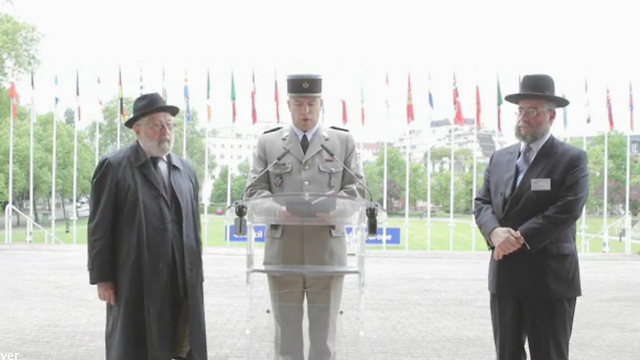
The Conference of European Rabbis, meanwhile, dubbed the bill "unfortunate" and called on Poles to create a "truth and justice" commission to examine once and for all the behavior of the Polish state and underground organizations' conduct vis-à-vis Jews present in the country during World War Two.
The Conference's President Rabbi Pinchas Goldschmidt explained the notion by saying, "Other countries in Europe, even Switzerland, founded similar commissions. Since the topic was reopened by this unfortunate bill, it's time to fully confront and investigate this chapter of Poland's history with the help of world-renowned historians."










